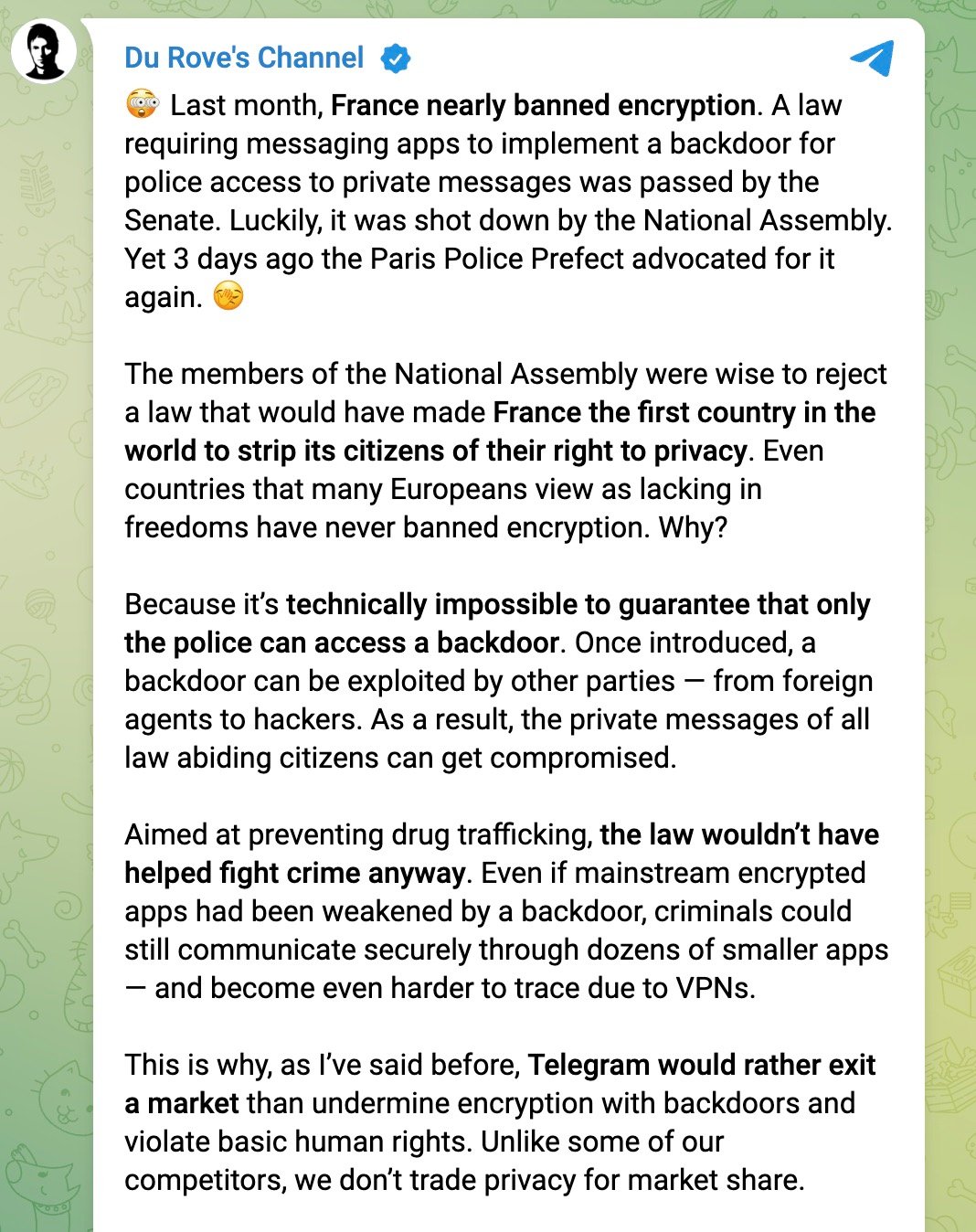Telegram CEO Pavel Durov has announced that his company would rather leave certain markets – like France, but also other EU countries – than be forced to incorporate encryption backdoors into the app and in this way undermine user privacy.
In a post on his Telegram channel, Durov says that France last month “nearly banned encryption” – which would have made it the world’s first country to leave its citizens without this vital online protection.

He is referring to a law that made the encryption backdoor requirement, which had cleared the Senate but was not adopted in the National Assembly. However, Durov notes that the idea remains alive, with figures like the Paris Police Prefecture continuing to push for it.
Just as many governments keep repeating their “mantra” about encryption backdoors being supposedly necessary to fight crime, Durov understands that encryption advocates need to keep repeating why this is a disastrous idea.
Thus his post explains that weakened encryption becomes a tool for everyone to exploit, governments, law enforcement, hackers, and spies.
And while governments claim they are aiming to prevent criminals from communicating securely, the inevitable result would be the facilitation of mass surveillance affecting everybody on the internet.
Durov makes another point about the failed French law, by saying that it wouldn’t have even achieved the declarative goals, since criminals have other means of communication at their disposal.
For these reasons, Durov states that his company, “unlike some competitors,” continues to prioritize privacy over market share.
“Telegram would rather exit a market than undermine encryption with backdoors and violate basic human rights,” he writes, and reiterates that encryption exists to protect law-abiding citizens’ communications (but also transactions, etc.) online, rather than a tool for criminals, and should be treated from that point of view.
Durov also claims that Telegram has never handed over actual messages to the authorities, but that it does act on what he refers to as valid court orders (under the Digital Services Act in the EU) to provide UP addresses and phone numbers of suspects.
Lastly, the Telegram CEO warns that despite the victory in France, this particular war is not over.
“This month, the European Commission proposed a similar initiative to add backdoors to messaging apps,” Durov remarks, and concludes:
“No country is immune to the slow erosion of freedoms. Every day, those freedoms come under attack — and every day, we must defend them.”













